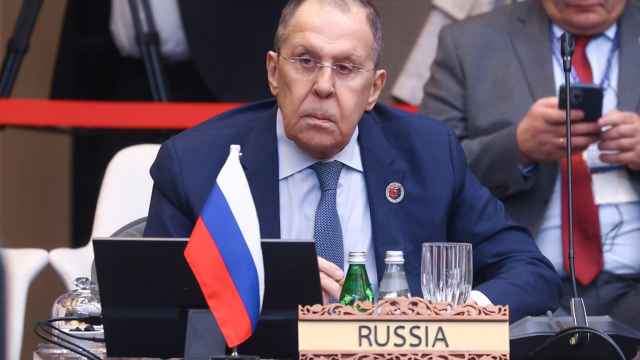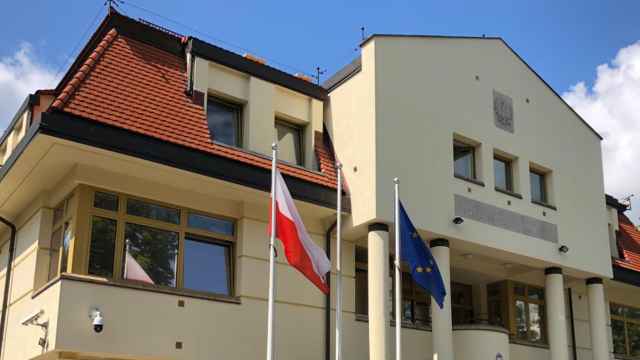Japan-based Isuzu's local joint venture on Friday began producing medium-duty trucks at a new assembly line in a sign that the automobile industry is not giving up in the face of a declining market.
Prime Minister Dmitry Medvedev attended the ceremony to kick off production in the Volga River city of Ulyanovsk. Isuzu's partner Sollers owns a plant there, called UAZ, which makes Russian sports utility vehicles and has provided premises for the Japanese assembly line.
The joint venture has been making Isuzu trucks since 2008, but last year decided to expand the local content of the work and the model range by investing in a new production facilities.
"This step will allow us to develop and produce new varieties of the trucks meant specifically for the Russian market," Sollers chief Vadim Shvetsov was quoted as saying in a company statement.
Sales of light commercial vehicles, like the ones that Isuzu will be making, declined 3.4 percent last year to 180,000 units, according to market research agency Avtostat. It was the first drop since 2009.
The local Isuzu plant has the capacity of 5,000 trucks per year. It started out making 1.5-6.5-ton ELF trucks and plans to add the 8-12.5-ton Forward models later this year, a statement from the joint venture said.
Isuzu will supply components for the trucks, and fairly much of the assembly of the final product will take place locally, including welding and painting work.
Controlled by Shvetsov, Sollers also makes South Korean sport utility vehicles Ssang Yong, Japanese sport utility vehicles Toyota Land Cruiser and two Mazda models, in partnership with Mitsui and Mazda, respectively.
GAZ Group traditionally led the market for light commercial vehicles last year, accounting for almost half of the sales, or 82,000 units. UAZ came in second with 22,000 sold trucks. Volkswagen and Ford trailed the Russian rivals.
In other Ulyanovsk events on Friday, Medvedev attended the signing of a deal whereby Swiss construction company Dega Group agreed to build an industrial park in the city. The company's chief inked the agreement with Ulyanovsk Governor Sergei Morozov.
A Message from The Moscow Times:
Dear readers,
We are facing unprecedented challenges. Russia's Prosecutor General's Office has designated The Moscow Times as an "undesirable" organization, criminalizing our work and putting our staff at risk of prosecution. This follows our earlier unjust labeling as a "foreign agent."
These actions are direct attempts to silence independent journalism in Russia. The authorities claim our work "discredits the decisions of the Russian leadership." We see things differently: we strive to provide accurate, unbiased reporting on Russia.
We, the journalists of The Moscow Times, refuse to be silenced. But to continue our work, we need your help.
Your support, no matter how small, makes a world of difference. If you can, please support us monthly starting from just $2. It's quick to set up, and every contribution makes a significant impact.
By supporting The Moscow Times, you're defending open, independent journalism in the face of repression. Thank you for standing with us.
Remind me later.





